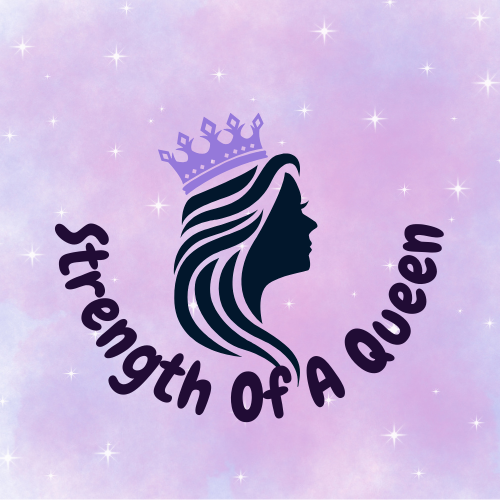Surviving Narcissistic Abuse as an Undiagnosed Neurodivergent Person: A Silent Struggle
- strengthofaqueen

- Mar 16, 2025
- 4 min read
Updated: Jun 26, 2025

Living with undiagnosed neurodivergence presents its own set of challenges, but when combined with narcissistic abuse, it becomes an overwhelming and deeply isolating experience. Many neurodivergent individuals, unaware of their condition, find themselves trapped in toxic relationships where their traits are misunderstood, manipulated, and weaponized against them.
Understanding Neurodivergence and Its Vulnerability to Narcissistic Abuse
Neurodivergence refers to conditions such as autism, ADHD, dyslexia, and other neurological differences that affect how a person processes information, interacts with the world, and navigates social relationships. When someone is undiagnosed, they may not fully understand why they struggle with communication, sensory overload, or emotional regulation making them easy targets for narcissistic abuse.
Narcissists thrive on control, gaslighting, and emotional manipulation. Neurodivergent individuals, especially those undiagnosed, often:
Struggle with social cues and manipulation detection
Have heightened empathy, making them more forgiving of toxic behaviours
Experience sensory overload, which can be used against them by an abuser
Rely on routines or predictability, which a narcissist deliberately disrupts
Face difficulties in articulating their emotions, making it harder to defend themselves
These factors create the perfect storm where the victim doesn’t even realize they are being abused until significant emotional damage has been done.
The Gaslighting Effect: When You Don’t Trust Your Own Mind
One of the most damaging aspects of narcissistic abuse is gaslighting the act of making the victim doubt their own reality. For an undiagnosed neurodivergent individual, this is even more detrimental.
You Already Feel Different: If you’ve always felt “off” compared to others but never understood why, a narcissist will exploit this by making you question your reality even further.
They Weaponize Your Sensitivities: Narcissists often use sensory overload, emotional dysregulation, or communication struggles as ways to discredit their victims.
Masking Becomes Survival: Neurodivergent individuals often “mask” their true selves to fit in. In a narcissistic relationship, this masking intensifies as you try to prevent outbursts, avoid blame, or minimize conflict.
Over time, you begin to internalize the idea that you are “too sensitive,” “overreacting,” or “hard to love.” The reality is, you are being manipulated into believing these lies.
Emotional Exhaustion: When Every Day Feels Like a Battle
Neurodivergence already comes with emotional and mental exhaustion, but narcissistic abuse compounds this tenfold. The constant need to navigate unpredictable moods, passive-aggressive behaviour, or outright hostility drains your mental resources, leading to:
Chronic Anxiety: Never knowing when the next emotional explosion will happen keeps you on edge.
Emotional Shutdown: Many undiagnosed neurodivergent individuals experience emotional shutdowns as a defence mechanism, but in an abusive environment, this is labelled as “cold” or “uncaring.”
Over-Apologizing: Narcissists thrive on making their victims feel guilty, and neurodivergent individuals often end up apologizing for things they didn’t even do.
Isolation: You may withdraw from friends and family, fearing that they won’t understand what you’re going through or believing the narcissist’s narrative that “no one else will tolerate you.”
This cycle of abuse leaves victims in a state of emotional paralysis, where leaving feels impossible, but staying is unbearable.
Breaking Free: Steps to Reclaim Your Identity
Escaping narcissistic abuse is difficult for anyone, but for an undiagnosed neurodivergent person, it requires an extra layer of self-awareness and self-compassion. Here’s how you can begin to break free:
1. Recognize the Patterns
Start by identifying the signs of narcissistic abuse. If you consistently feel anxious, emotionally drained, or like you’re walking on eggshells, this is a red flag.
2. Seek Professional Support
If possible, find a therapist who understands both narcissistic abuse and neurodivergence. If you suspect you are neurodivergent, getting an official diagnosis can be validating and provide deeper self-understanding.
3. Rebuild Your Sense of Self
A narcissist’s goal is to strip away your confidence. Start small write down things you love about yourself, your strengths, and your achievements outside of the abusive relationship.
4. Establish Boundaries
Narcissists hate boundaries, but setting and enforcing them is crucial. It could be limiting contact, refusing to engage in arguments, or cutting ties entirely if possible.
5. Find a Support Network
Isolation is one of the narcissist’s greatest weapons. Reconnect with trusted friends, online communities, or support groups for both neurodivergent individuals and abuse survivors.
6. Practice Self-Care and Emotional Regulation
Healing requires both emotional and physical care. Activities like journaling, engaging in special interests, meditation, or even therapy-focused approaches such as CBT (Cognitive Behavioural Therapy) can help restore balance.
Healing and Thriving: Life After Narcissistic Abuse
Leaving an abusive relationship doesn’t immediately erase the trauma. Many survivors experience post-traumatic stress, self-doubt, and difficulty trusting others. However, with time and self-compassion, healing is possible.
Redefine Your Identity: Separate who you are from what you were told by the narcissist. You are not “too much.” You are not “broken.” You are not “unworthy.”
Learn About Your Neurodivergence: Understanding your brain’s unique wiring can be a game-changer. It allows you to embrace your strengths while accommodating your challenges in a healthy way.
Create a New Normal: Build a life that is cantered around safety, self-expression, and emotional stability.
The most powerful realization for a survivor of narcissistic abuse is understanding that freedom exists outside the control of an abuser. For neurodivergent individuals, that freedom also comes with the ability to finally live without the confusion and self-doubt that once dictated every interaction.
Being an undiagnosed neurodivergent person in a narcissistically abusive relationship is one of the most challenging experiences to navigate. But you are not alone. With the right knowledge, support, and self-compassion, you can break free from toxic cycles and create a life where you are valued, respected, and understood.
Have you experienced narcissistic abuse while being neurodivergent?
Have you been diagnosed after your experience?
What has helped you heal and reclaim your life?
Share your thoughts in the comments below and join the conversation, your story might help someone else on their journey to freedom.



Comments